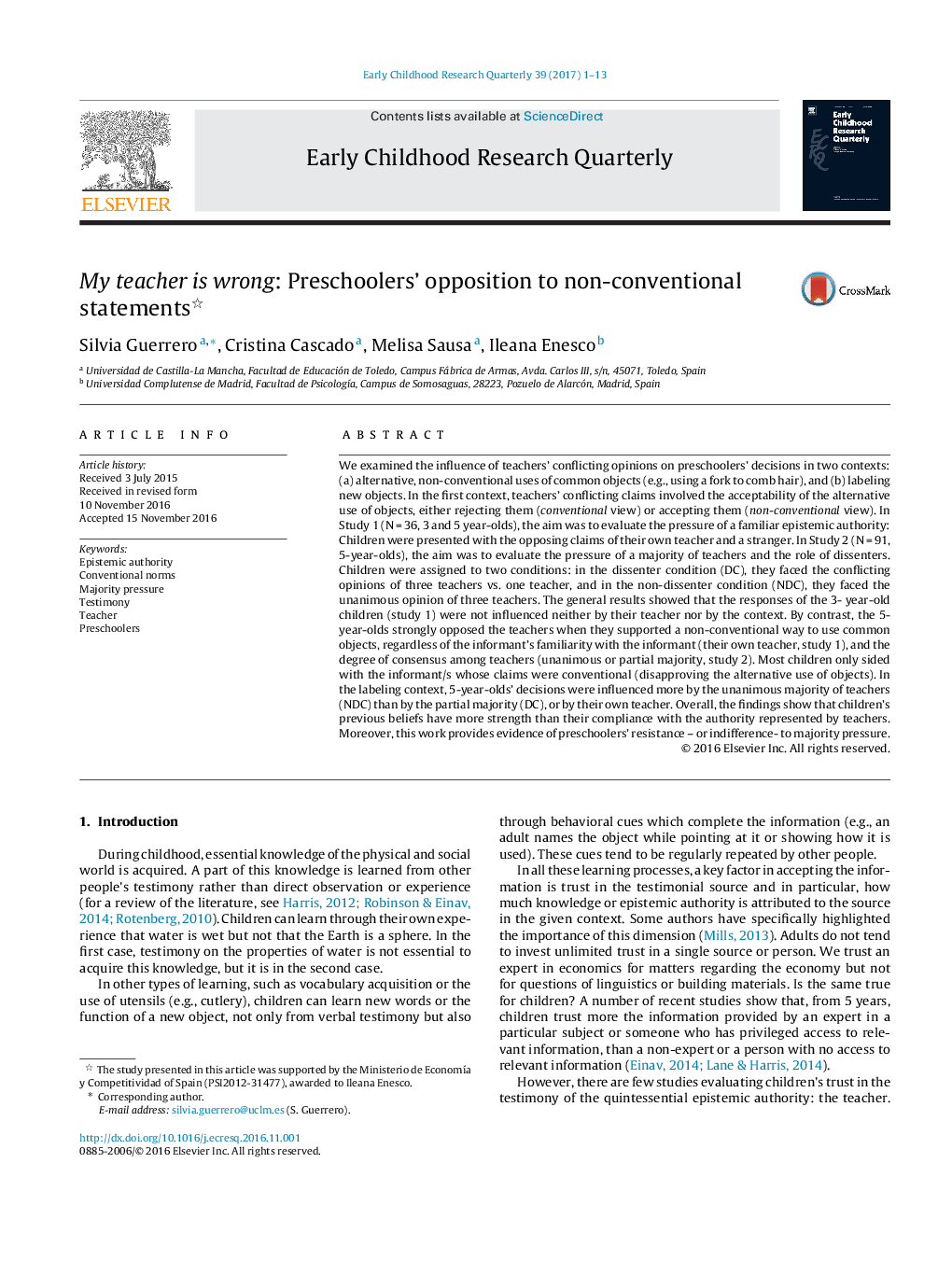| Article ID | Journal | Published Year | Pages | File Type |
|---|---|---|---|---|
| 4938228 | Early Childhood Research Quarterly | 2017 | 13 Pages |
Abstract
We examined the influence of teachers' conflicting opinions on preschoolers' decisions in two contexts: (a) alternative, non-conventional uses of common objects (e.g., using a fork to comb hair), and (b) labeling new objects. In the first context, teachers' conflicting claims involved the acceptability of the alternative use of objects, either rejecting them (conventional view) or accepting them (non-conventional view). In Study 1 (NÂ =Â 36, 3 and 5 year-olds), the aim was to evaluate the pressure of a familiar epistemic authority: Children were presented with the opposing claims of their own teacher and a stranger. In Study 2 (NÂ =Â 91, 5-year-olds), the aim was to evaluate the pressure of a majority of teachers and the role of dissenters. Children were assigned to two conditions: in the dissenter condition (DC), they faced the conflicting opinions of three teachers vs. one teacher, and in the non-dissenter condition (NDC), they faced the unanimous opinion of three teachers. The general results showed that the responses of the 3- year-old children (study 1) were not influenced neither by their teacher nor by the context. By contrast, the 5-year-olds strongly opposed the teachers when they supported a non-conventional way to use common objects, regardless of the participant's familiarity with the informant (their own teacher, study 1), and the degree of consensus among teachers (unanimous or partial majority, study 2). Most children only sided with the informant/s whose claims were conventional (disapproving the alternative use of objects). In the labeling context, 5-year-olds' decisions were influenced more by the unanimous majority of teachers (NDC) than by the partial majority (DC), or by their own teacher. Overall, the findings show that children's previous beliefs have more strength than their compliance with the authority represented by teachers. Moreover, this work provides evidence of preschoolers' resistance - or indifference- to majority pressure.
Keywords
Related Topics
Social Sciences and Humanities
Psychology
Applied Psychology
Authors
Silvia Guerrero, Cristina Cascado, Melisa Sausa, Ileana Enesco,
